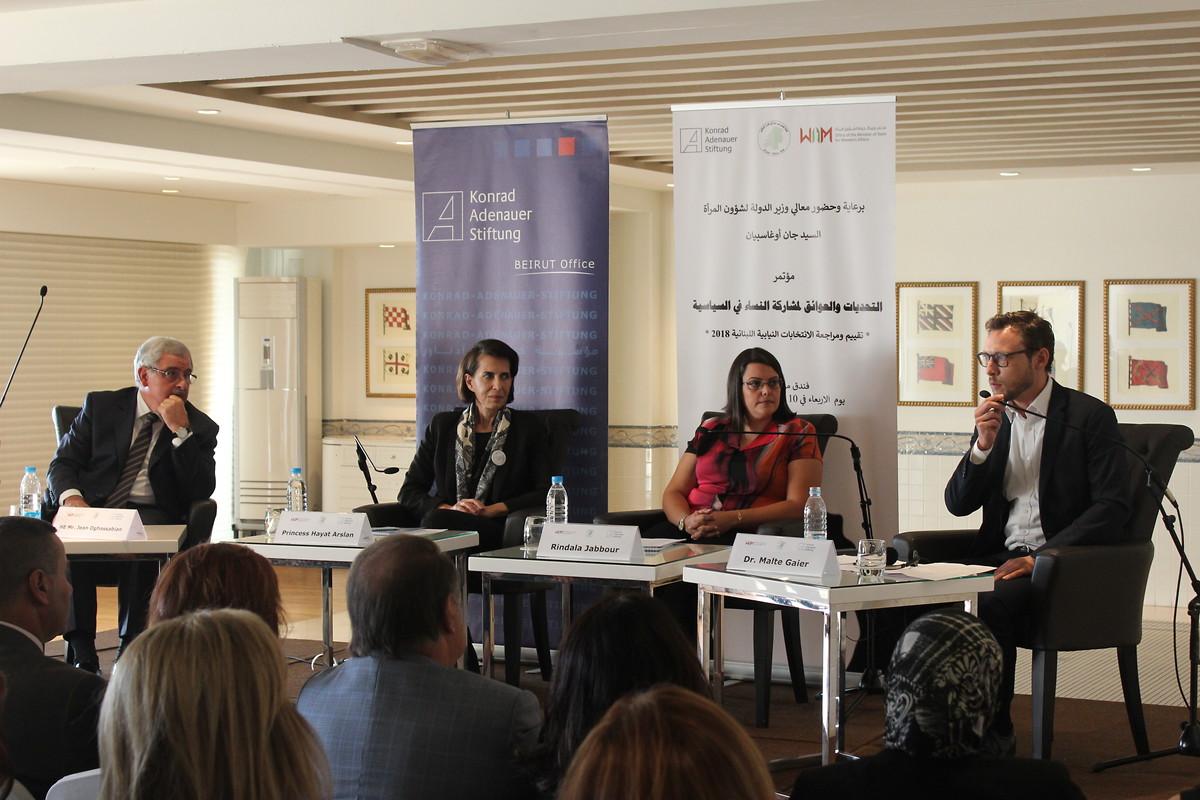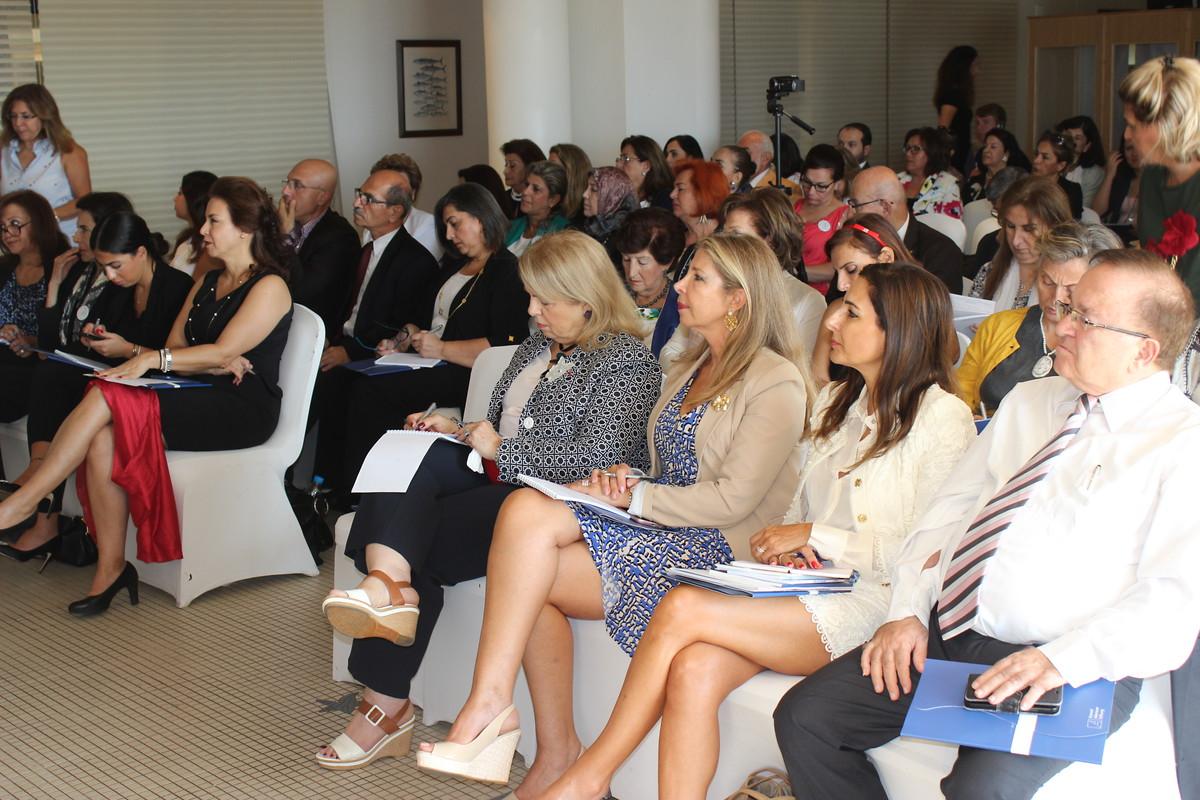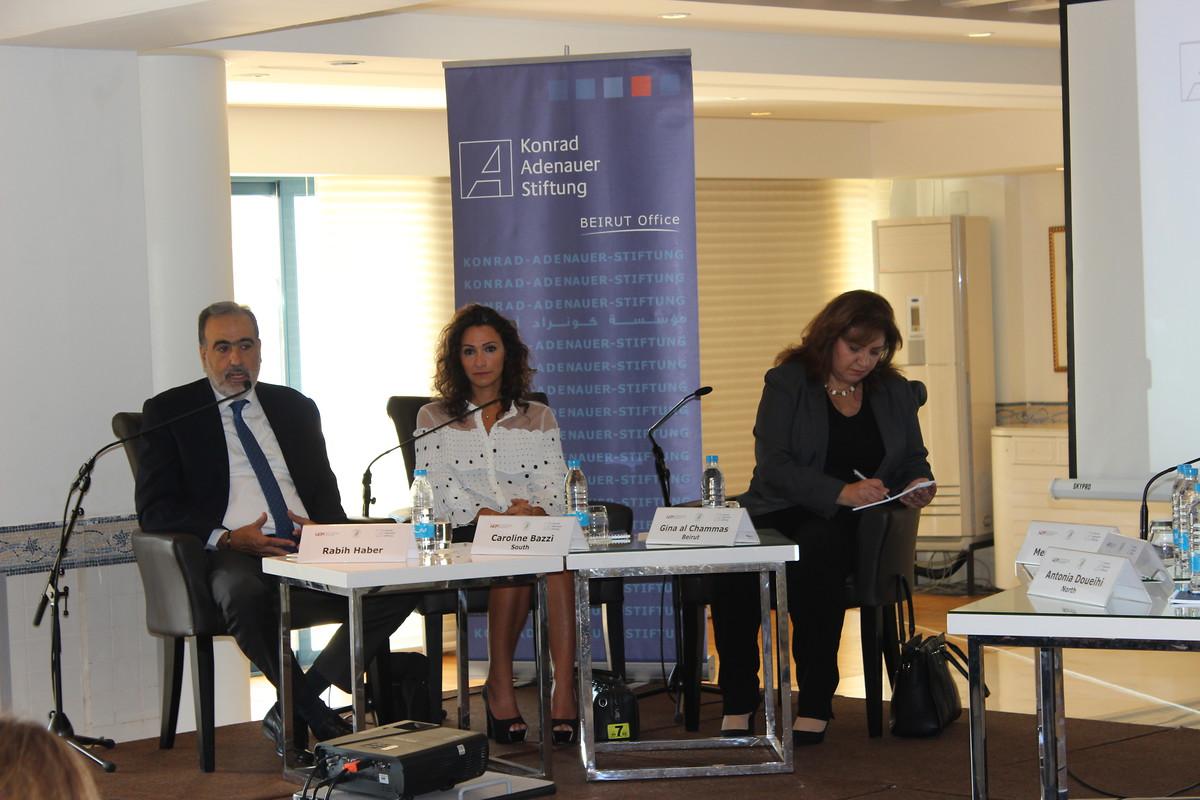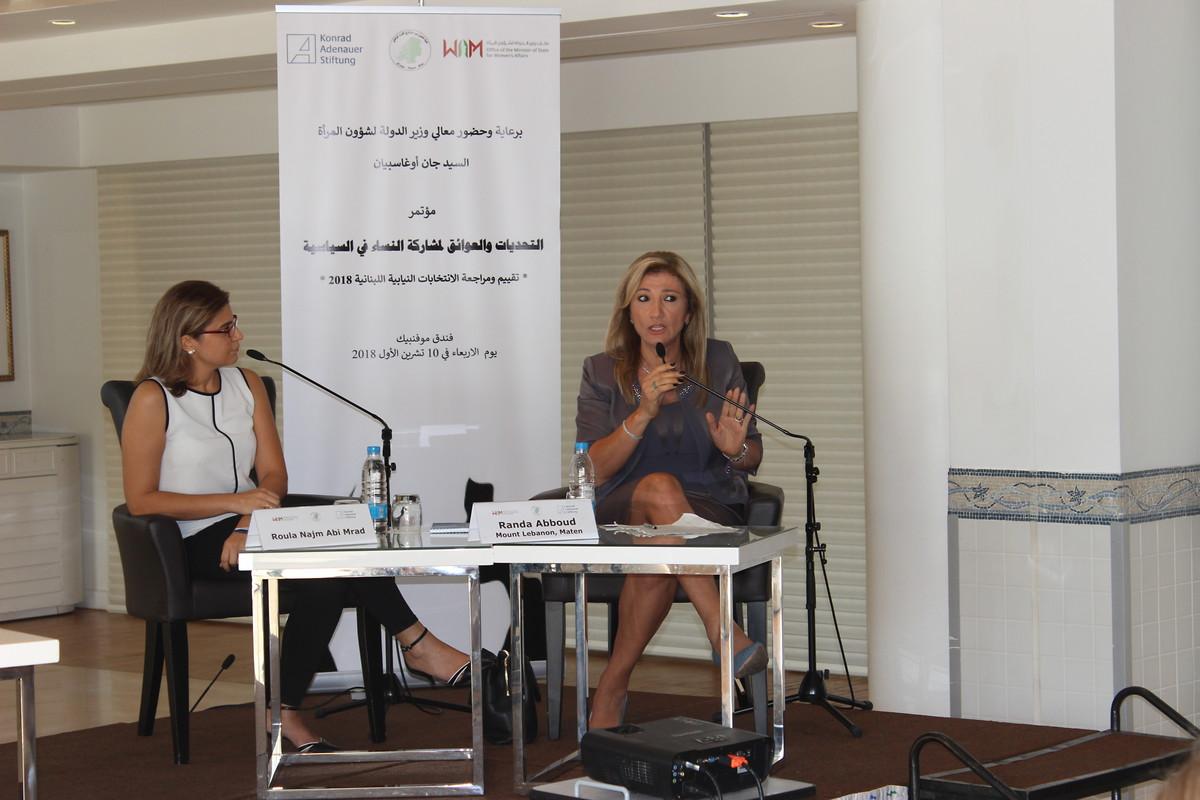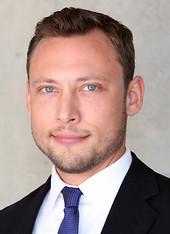Barriers facing women participation in politics – review of 2018 elections - Foundation Office Lebanon
Event Reports
The event was separated into three discussion panels. The first discussion panel focused on the new electoral law and the challenges for women brought by it. Considering the challenges and problems women were facing in the last parliamentary elections it was also discussed what amendments should be added to the law in order to facilitate it for women but also new candidates in general to run in the next elections. Caroline Bazzi, a journalist who ran for parliament in the May 2018 elections mentioned that one of the biggest problem as an independent candidate was to find an electoral list as established powers would only use women to gain votes. Moreover the lack of real civil society makes it hard for women to find a platform and gain supporters for their campaign. Without a male spokesman, it is nearly impossible for women to win a seat in parliament as they are facing major problems expressing their opinion. On top of that a woman running for parliament would not be taken serious in conservative areas of the country. Despite the participants` different views, they all agreed, that a quota for women in parliament would facilitate the overall situation of women in Lebanese politics.
The second panel focused on financial difficulties that female candidates are facing as well as possible actions that can be taken to improve the electoral law until the next elections. All discussion participants agreed that the electoral law was implemented by the political elite in order to keep their power and their seats in parliament, while women faced problems financing their campaign. While established candidates are often backed by a party or a wealthy electoral list, women and new candidates often lack financial support. This results in disadvantages as candidates would have to pay TV channels in order to get a platform. Independent candidates usually cannot afford these funds. That is why the participants pleaded for strict monitoring of campaign funds. The overall corruption is seen as a big problem too. Furthermore it was recommended to establish a women parliament, which should work parallel to the ordinary parliament in order to create some pressure on the MPs and the government. This women parliament would also be a chance for women to create their own political network, make new contacts and prepare together for the next elections.
The third panel which was moderated by the journalist Rindala Jabbour included inputs from HE Jean Oghassabian, Ms. Hayat Arslan and the Resident Representative of KAS in Lebanon, Dr. Malte Gaier. This third panel included political recommendations to encourage more participation of women in politics. In her statement Ms. Arslan supported the idea of implementing a women quota for parliamentary elections in order to increase the number of female MPs. HE Oghassabian supported that suggestion, but advocated a quota only for the next one or two elections as a temporary step. Within that period of time, people would get used to the presence of more women in parliament, so that in the future a quota would not be necessary anymore. Dr. Gaier agreed to that suggestion advocating the natural growth of percentage of women in politics, after sticking with a quota for a certain period of time.



